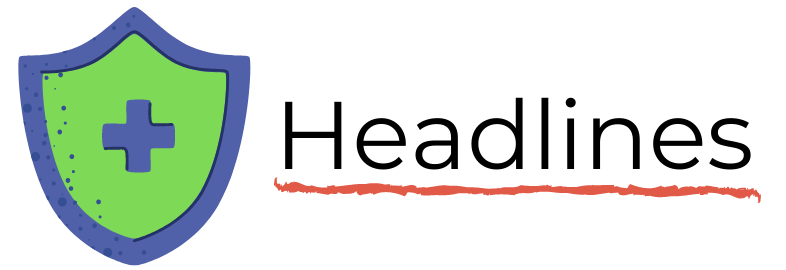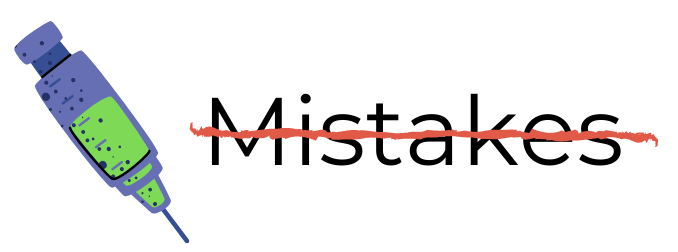COVID Transmissions for 11-6-2020
Good morning! It has been 355 days since the first documented human case of COVID-19.
Election day, now three days long, is nearing its close finally as I write this. It’s possible that when it goes out to you, it will be over, and that will be a relief.
In the meantime, we have some headlines today.
As usual, bolded terms are linked to the running newsletter glossary.
Keep the newsletter growing by sharing it! I love talking about science and explaining important concepts in human health, but I rely on all of you to grow the audience for this:
Now, let’s talk COVID.
Minks with COVID-19? A mutation?
There’s this story in the New York Times about how Denmark is killing all its minks because there was a COVID-19 outbreak in minks there, and the government thinks some of the viruses passed from minks back into humans. The government said something about a mutation in minks potentially interfering with vaccine effectiveness. You can read the story here: https://www.nytimes.com/2020/11/04/health/covid-mink-mutation.html
However, this is silly and irresponsible. Let’s get real for a minute. The government of Denmark hasn’t cited any data or published anything about this. This is basically a press release. They haven’t said what the supposed mutation is and they haven’t been clear about what’s going on with the minks.
Here’s what probably happened: minks got it from people, and that isn’t surprising. Minks are closely related to ferrets, and we know ferrets can get infected with COVID-19.
Were there mutations in the minks? Of course there were. Viruses mutate a lot. Do we have any evidence these mutations make a difference in humans? No, we don’t have any evidence of anything at all here.
To interfere with vaccines, as the Danish government has alleged, the supposed mutation would need to have two characteristics:
It would need to be in the spike glycoprotein, because this is the source of most vaccine antigens
It would need to be a mutation that is still viable in humans
These are necessary conditions, but they are not sufficient.
Viruses mutate when they enter new species. When they do that, it’s out of pressure to adapt to the new species. There’s no reason to suspect that the mutations that are required to survive in minks would be at all viable in humans. There’s no reason to suspect that these mutations would interfere with domains of the S protein that impact immunity in any way. Partly this is because the mutations haven’t been described, but I have a suspicion that even if they were, the claim of vaccine interference would be overblown.
For one thing, we don’t have a working vaccine yet, so there’s really no way of knowing if there’s any vaccination mechanism being interfered with, even if we did know what the mutation(s) were.
Additionally, I remember in 2009, during the flu pandemic. The government of Egypt heard “swine flu” and preemptively killed every pig in the country—this was while the virus was still pretty restricted to the Western Hemisphere, if I recall correctly.
Governments do silly things sometimes when they think livestock populations are a public health risk. This is partly because livestock are pretty inexpensive, and the people who raise them are generally appeased by being compensated for their losses. It’s also because the risk-reward payoff is pretty reasonable. There’s very little harm from killing all the minks, so even if there’s a remote risk, it might be worth it.
I wouldn’t make too much out of this story, at least not until we know a little bit more about what’s happening with SARS-CoV-2 in minks.
US surpasses 100,000 new COVID-19 cases in a single day
Yeah, that happened on November 4th. Not as much fun to write about as the minks.
I’ve made the prediction that by the end of the month we’ll be seeing 160,000 cases per day or more in the US. I’ve also made the prediction that we’ll get our first vaccination Phase 3 data by the end of the month. Perhaps if so many cases keeping happening, we’ll get it a little sooner. Looking for the silver lining.
I don’t have a way to sugar coat it widely, though. The bottom line is that the winter is going to be bad, and you need to prepare. Stay safe. This is a virus that is dangerous even if you survive it. The best solution for it is to never get it at all. If you haven’t yet, try to keep it that way.
What am I doing to cope with the pandemic? This:
Thinking about cruciferous vegetables
Recently we got some kohlrabi from our community-supported agriculture share. Kohlrabi is interesting; for one thing, that name is German even though to me it totally sounds Arabic. It looks like this:

I find it tastes a little bit like jicama, a little bit like radishes, and a little bit like broccoli. That last part is because it is broccoli.
Broccoli and kohlrabi are both cultivars of the species Brassica oleracea, which is the species of vegetable. Yes, I said “the” there on purpose, because also in the same species are cabbage, kale, brussels sprouts, cauliflower, collard greens, savoy cabbage, and gai lan (“Chinese broccoli”).
These aren’t related plants of similar species. They are the same species. When you eat brussels sprouts, you’re eating something that could interbreed with broccoli successfully. The same with everything else on this list. Personally I think this is amazing and demonstrates how domesticated plants can be selected to fit a number of human needs.
Anyway, I think kohlrabi is great diced and put into a salad raw; but you have to peel off the thick skin on it. It can also be sautéed, though not everyone likes it that way. If you can get it, I recommend it.
Join the conversation, and what you say will impact what I talk about in the next issue.
Also, let me know any other thoughts you might have about the newsletter. I’d like to make sure you’re getting what you want out of this.
This newsletter will contain mistakes. When you find them, tell me about them so that I can fix them. I would rather this newsletter be correct than protect my ego.
Though I can’t correct the emailed version after it has been sent, I do update the online post of the newsletter every time a mistake is brought to my attention.
No corrections since last issue.
Thanks for reading, everyone!
See you all next time.
Always,
JS







